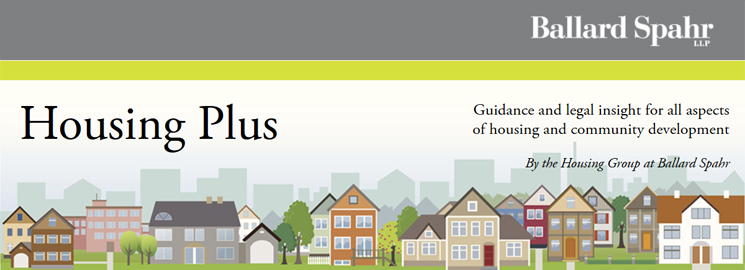
 The Senate Appropriations Committee has approved its draft Transportation, Housing and Urban Development, and Related Agencies Appropriations Bill for fiscal year 2015. While the bill generally falls short of the funding levels requested in President Obama’s budget proposal, it proposed some significant changes to the Rental Assistance Demonstration, and proposes a “pay-for-success” energy and water conservation demonstration.
The Senate Appropriations Committee has approved its draft Transportation, Housing and Urban Development, and Related Agencies Appropriations Bill for fiscal year 2015. While the bill generally falls short of the funding levels requested in President Obama’s budget proposal, it proposed some significant changes to the Rental Assistance Demonstration, and proposes a “pay-for-success” energy and water conservation demonstration.
As previously noted in this blog, the Senate bill supports the expansion of the RAD cap from 60,000 units, to 185,000 units. It takes further steps to strengthen RAD, allocating $10,000,000 for the administration of the program, and supporting both the RAD conversion of Single Room Occupancy dwellings and the use on Rental Housing Assistance and tenant-based rental assistance funds for RAD conversions. The bill also clarifies the reporting requirements in RAD’s authorizing legislation, the fiscal year 2012 Appropriations Bill, requesting an impact study of the fiscal year 2012-2013 RAD conversions.
HUD is anxious to expand the reach of RAD and the Senate language is a good start. While the House bill does not authorize any increase in RAD, it will be interesting to see if a compromise that allows at least some expansion of RAD can be negotiated in the final bill. HUD reports that it currently has received applications for approximately 180,000 units.
In addition, the Senate version includes a proposed utility demonstration program which would allow owners of HUD-assisted properties to seek private funds for investing in improvements of their energy and water infrastructure. The program centers on “performance-based agreements” in which private organizations pay for the energy retrofits, and can then retain any documented savings from their improvements other than the income HUD will keep to offset the demonstration’s administrative costs. As proposed, the pay-for-success demonstration is capped at 20,000 units, and is only eligible at properties that participate in three HUD programs: Project-Based Section 8, Section 202 Supportive Housing for the Elderly, and Section 811 Supportive Housing for Persons with Disabilities.
This is a long awaited innovation which, if enacted, will create a new tool for financing energy related improvements in some of the HUD-assisted portfolio. There is hope that, if successful, this initiative could be expanded to support the rehabilitation of RAD units, and also be applied to other programs.
For more on these developments, click here for a summary of the bill, and here to read the full text of the legislation.